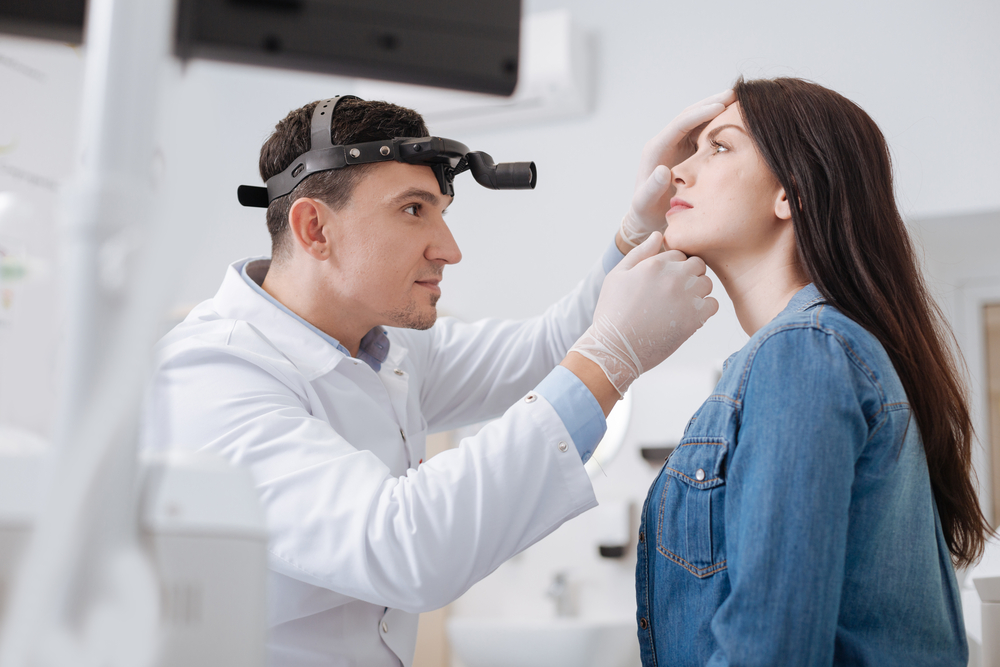
Sinus infections, also called sinusitis, can be more than just a sporadic inconvenience.
For some people, these infections linger for weeks, or come back frequently, causing ongoing facial pressure, congestion, and exhaustion.
Contrary to common belief, a persistent sinus infection is often more than simply a lingering cold, with underlying factors at play that can complicate the issue. From environmental irritants to anatomical issues, multiple factors can contribute to chronic or recurrent sinus issues.
To break the cycle of recurring or relentless sinus infections, it’s essential to determine the root causes and discover the various treatment choices, paving the way for reliable and long-term solutions.
What triggers persistent or chronic sinus infections?
Not all sinus infections are created equally. While many start with a cold or seasonal allergy, others are activated by lesser-known problems that are frequently disregarded in daily life. Here are a number of contributors to persistent sinus problems::
Contact with water treated with chlorine
Frequent swimming, particularly in pools with elevated chlorine levels, can irritate the nasal lining. Inflammation and an accumulation of mucus can result from this irritation, leading to the blockage of sinus drainage and providing a favorable setting for bacteria to thrive.
Suggestion: To avoid worsening nasal congestion, it is advisable to avoid putting your head underwater or engaging in swimming adventures when you have allergies or respiratory infections.
Blockages of the nasal passages and nasal polyps
Small, non-cancerous growths known as nasal polyps can develop in the sinuses or nasal cavity. These growths can trap mucus and block the flow of air, increasing the chance of developing an infection. Typical signs include head pain, decreased ability to smell, and pressure in the face.
Management Options:
- Corticosteroid sprays to reduce polyp size
- Minimally invasive surgery in more extreme cases
Smoking and exposure to secondhand smoke
Cigarette smoke aggravates the sinuses, damages the mucosal lining, and compromises your immune system. This combination makes it more difficult for the body to eliminate infections, leading to prolonged symptoms and more severe episodes.
Bottom Line: Quitting smoking and avoiding exposure to smoke can significantly enhance sinus health.
Environmental and seasonal allergies
Compounds including pollen, mold spores, dust mites, and pet dander have the potential to trigger swelling and irritation in the nasal passages. This inflammation blocks the normal flow of fluids and encourages the growth of bacteria. This is especially valid during peak allergy season.
Treating your allergies with medication or allergy shots can reduce your chances of developing sinus infections.
Viral sinus infections vs. bacterial sinus infections
Most sinus infections begin as viral, meaning they’re caused by the common cold and don’t call for antibiotics. If symptoms stick around for an extended time frame of 10 days or longer, or if they initially show signs of improvement only to deteriorate again, it is possible that a secondary bacterial infection has arised.
- Viral sinusitis can typically improve with rest, staying hydrated, and using non-prescription medications.
- Bacterial sinusitis may necessitate a regimen of antibiotics to obtain complete healing.
Indications you should see an ENT specialist
While the majority of sinus infections resolve within 7– 14 days, some instances necessitate medical intervention. Get a professional evaluation if you experience:
- Headaches that don’t clear up with medication
- Facial pain that intensifies over time
- Nasal discharge that is yellow or green, especially with fever
- Swelling or tenderness around the eyes or nose
- Symptoms that return after antibiotics
- Prolonged nasal obstruction exceeding a 14 days
These symptoms may be a sign of a long-term sinus problem that demands specialized assessment and treatment.
Understanding how ear, nose, and throat Doctors diagnose sinus infections
An Otolaryngologist or ENT can treat challenging sinus issues that go beyond basic nasal obstruction. They provide comprehensive testing to identify structural problems, chronic infections, or allergy-related inflammation.
Treatment Options May Include:
- Prescription medications to decrease swelling or fight infection
- Personalized allergy treatment strategies created to address your distinct allergies
- Sinus surgery to fix structural issues
- Minimally invasive treatments to reestablish normal fluid flow
These treatments provide a long-term solution for people who have gone through chronic health problems or recurring bouts of illness, providing them with sustained comfort and improved well-being.
Take action today
If you are noticing that chronic sinus infections are affecting your breathing, sleep, or concentration, it is important to consult with a specialist for appropriate treatment.
An ear, nose, and throat specialist is able to identify the root cause of your symptoms and create a customized treatment plan to enhance your well-being.